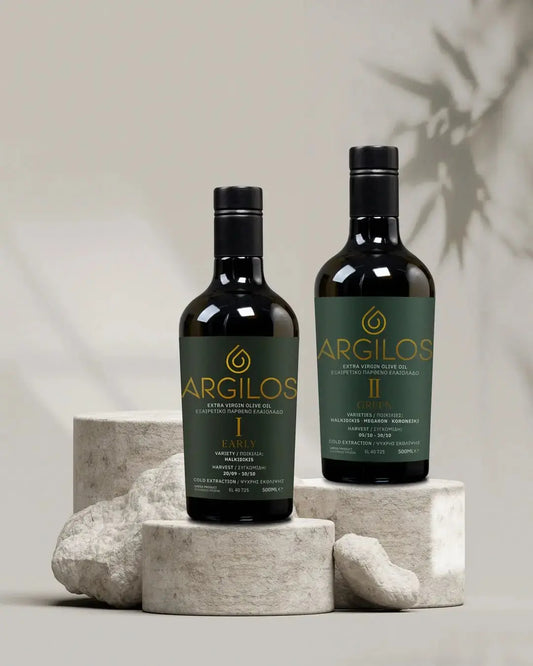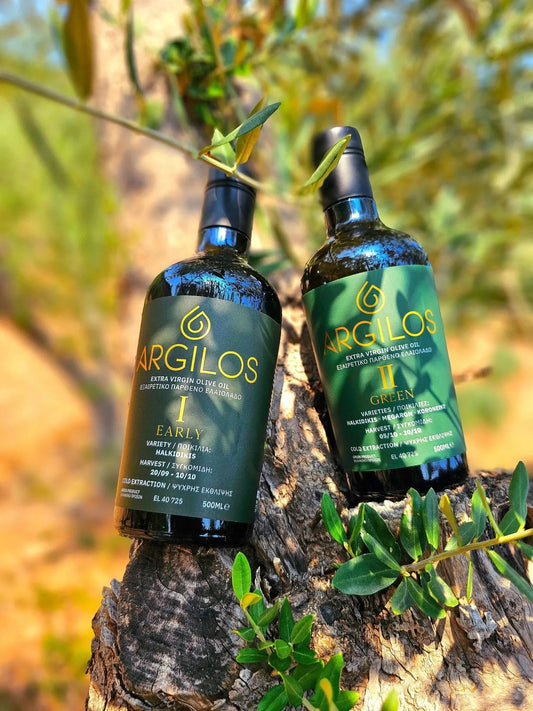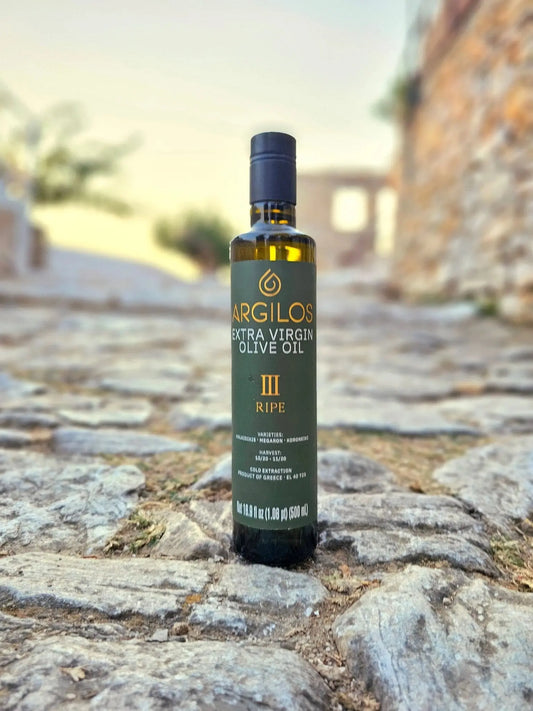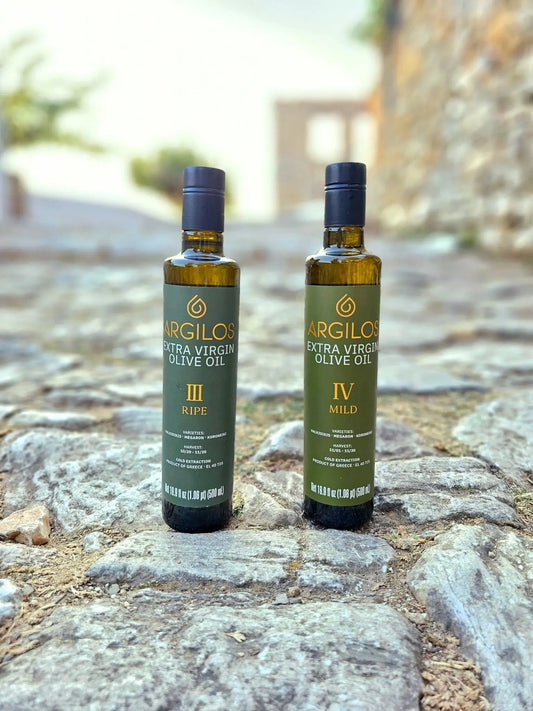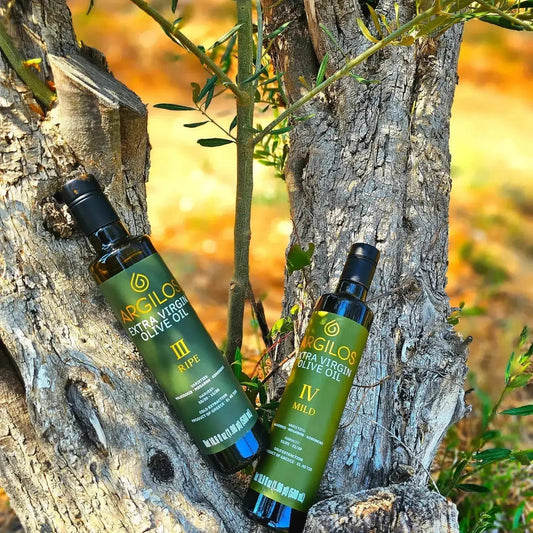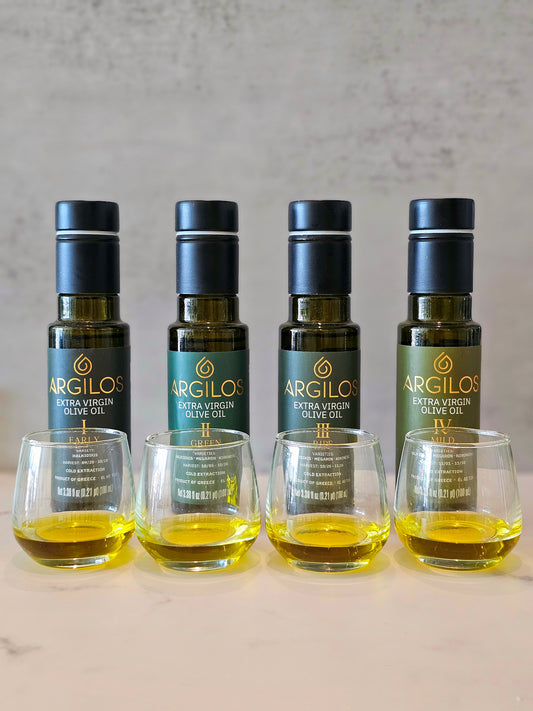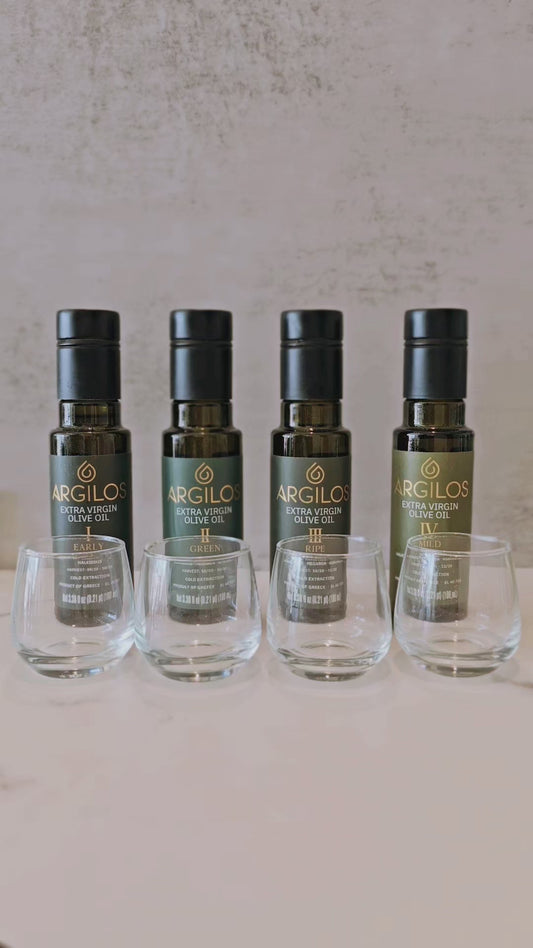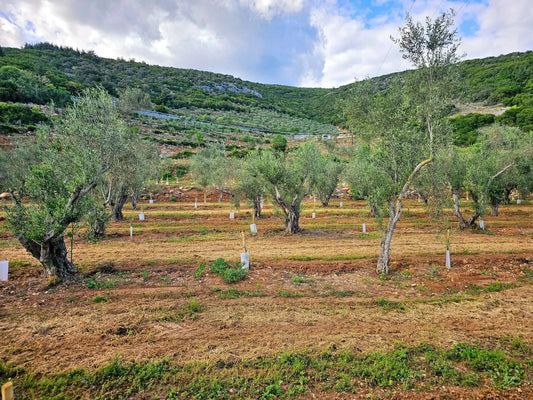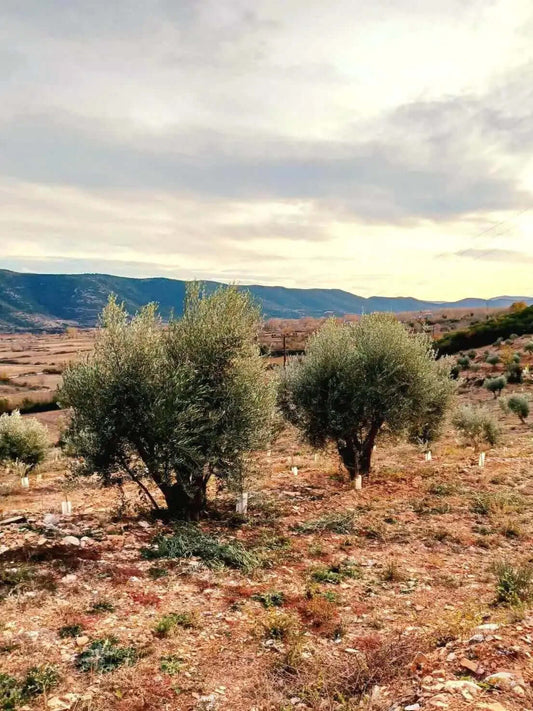Authentic Greek Recipes That Highlight Different Olive Oil Intensities
Share

The Art of Authentic Greek Cooking with Olive Oil
Greek cuisine stands as a testament to simplicity and flavor, with olive oil serving as its liquid gold foundation. For millennia, this Mediterranean elixir has been the cornerstone of Hellenic gastronomy, offering not just taste but a connection to ancient traditions. The interplay between authentic Greek recipes and varying olive oil intensities creates a culinary symphony that elevates even the most humble ingredients to extraordinary heights.
The Cultural Significance of Olive Oil in Greek Culinary Tradition
Olive oil transcends its role as a mere ingredient in Greek cooking—it embodies cultural identity. The olive tree, revered as a divine gift from goddess Athena, has shaped Greek civilization for over 4,000 years. This veneration manifests in culinary practices where olive oil serves as both medium and message, carrying the essence of Greek terroir in every golden drop. The nuanced approach to olive oil usage distinguishes authentic Greek cuisine from its Mediterranean counterparts.
In traditional Greek households, olive oil quality remains paramount. Families often maintain connections with specific olive growers, seeking oils whose characteristics complement regional recipes. This relationship between producer and consumer exemplifies the farm-to-table ethos that contemporary food movements now champion but has been intrinsic to Greek cooking for generations.
Understanding Olive Oil Intensity Profiles
The spectrum of olive oil intensities offers a fascinating palette for culinary exploration. From robust early-harvest oils to delicate late-season pressings, each intensity level serves a distinct purpose in Greek cooking. Understanding these profiles unlocks the authentic flavor combinations that define traditional Greek dishes.
The Science Behind Taste Variations
Olive oil's intensity directly correlates with its harvest timing and processing methods. Early-harvest oils, pressed from green olives, contain higher concentrations of polyphenols—powerful antioxidants that create that distinctive peppery finish and slight bitterness. These characteristics, often misinterpreted as flaws by novices, actually indicate premium quality and exceptional nutritional value.
The harvest progression sees olives mature from green to purple-black, during which their flavor compounds evolve dramatically. This natural metamorphosis yields oils with progressively milder profiles, lower polyphenol content, and increased buttery notes. The artistry in authentic Greek cooking lies in matching these intensity gradients with appropriate culinary applications.
Selecting the Perfect Olive Oil for Greek Recipes
Authenticity in Greek cooking begins with selecting appropriate olive oil intensities for specific dishes. This discernment represents culinary wisdom passed through generations, where intensity profiles are matched to preparation methods, complementary ingredients, and desired outcomes.
From Pangaion to Your Pantry: Single-Estate Excellence
Mount Pangaion in Kavala, Greece, represents one of the Mediterranean's most distinguished olive-growing terroirs. The region's microclimate and mineral-rich soil produce olives with exceptional character, transformed into oils of remarkable complexity and balance.
For those seeking to recreate authentic Greek flavors at home, single-estate oils like Argilos Extra Virgin Olive Oil offer unparalleled quality. Unlike mass-produced alternatives, these artisanal products maintain complete traceability and transparency—attributes increasingly important to conscientious consumers.
The Argilos IV Mild represents the delicate end of the intensity spectrum. Harvested later in the season when olives have fully ripened, this golden elixir delivers buttery smoothness with subtle fruity undertones. Its restrained character makes it ideal for delicate fish preparations, vegetable dishes requiring a gentle touch, or traditional Greek desserts where olive oil's presence should whisper rather than shout.
This exquisite oil exemplifies how thoughtful harvesting decisions translate to versatile culinary applications. Its balanced profile allows the authentic flavors of other ingredients to shine while providing that distinctively Greek foundation. For home cooks seeking to recreate traditional recipes with precision, this mild intensity option removes the guesswork from achieving authentic results.
Exploring the Complete Olive Oil Intensity Spectrum
True mastery of Greek cooking requires familiarity with the complete olive oil intensity spectrum. From the most robust to the mildest expressions, each intensity offers distinct advantages for specific culinary applications.
The Nostos Collection: A Culinary Journey Through Intensities
The journey through authentic Greek cuisine benefits immensely from access to multiple olive oil intensities. The Nostos Goods collection presents this entire spectrum, from intense early-harvest oils to mild late-harvest varieties. This comprehensive approach enables home cooks to recreate regional Greek recipes with unprecedented authenticity.
Beyond their primary olive oils, the collection includes artisanal olive pastes in varieties like basil, oregano, and Kalamon olive, providing additional dimensions for Greek flavor exploration. These complementary products expand the home cook's capability to create multi-layered, authentic Greek dishes that honor traditional techniques while satisfying contemporary palates.
For eco-conscious culinary enthusiasts, the collection's sustainable practices and traditional production methods align perfectly with values around ethical consumption. Each product tells the story of Mount Pangaion's agricultural heritage while providing the essential building blocks for authentic Greek cooking.
Signature Greek Recipes Showcasing Different Olive Oil Intensities
The true test of olive oil understanding comes through practical application in authentic recipes. Traditional Greek dishes often rely on specific oil intensities to achieve their definitive character—a culinary wisdom worth exploring through practical examples.
Robust Intensity Applications: Bold Flavors and Raw Preparations
Early-harvest, high-intensity olive oils find their perfect expression in raw applications where their complex flavors can take center stage. Consider these authentic preparations:
"The most revelatory Greek cooking occurs when premium ingredients meet minimal intervention. A robust oil drizzled over warm bread speaks volumes about our culinary philosophy—let quality ingredients reveal themselves without excessive manipulation."
— Traditional Greek culinary proverb
- Horiatiki (Traditional Greek Salad): The quintessential Greek salad relies on robust olive oil to create a counter-balance to sharp feta and sweet tomatoes. The oil's peppery finish amplifies the oregano notes while standing up to the briny olives.
- Ladolemono: This simple emulsion of robust olive oil, lemon juice, and herbs creates a vibrant dressing for grilled seafood. The oil's intensity persists through the high acidity, creating harmonic balance.
- Dakos: Cretan rusks topped with grated tomato, mizithra cheese and finished with a generous pour of intense olive oil showcase how robust oils can transform simple ingredients into transcendent experiences.
Medium Intensity Applications: The Versatile Middle Ground
Medium-intensity oils offer remarkable versatility, performing admirably in both raw applications and low-to-medium heat cooking. These balanced oils support authentic preparations like:
Spanakopita (Spinach Pie): The interplay between phyllo pastry, spinach, and feta reaches perfection when medium-intensity olive oil binds the filling ingredients. The oil's moderate character enhances without overwhelming the delicate spinach flavor.
Gigantes Plaki (Baked Giant Beans): These slow-baked beans absorb medium-intensity oil during cooking, creating a velvety mouthfeel while allowing the aromatics—garlic, onion, and herbs—to establish their presence.
Mild Intensity Applications: Delicate Preparations and Sweet Applications
Late-harvest, mild-intensity oils excel in delicate preparations and, surprisingly, traditional Greek desserts. Their subtle character supports these authentic recipes:
Lavraki sto Fourno (Baked Sea Bass): This minimalist preparation relies on mild olive oil to enhance the fish's delicate flavor without competition. The oil's gentle presence carries herbs and lemon notes without asserting dominance.
Ladokouloura (Olive Oil Cookies): These traditional cookies showcase olive oil's sweet applications. Mild oils contribute moisture and subtle fruitiness without the pepperiness that would disrupt the delicate balance of orange zest and spices.
Frequently Asked Questions About Authentic Greek Cooking with Olive Oil
| Question | Answer |
|---|---|
| Can I substitute regular olive oil for extra virgin in Greek recipes? | Authentic Greek cooking relies on extra virgin olive oil's complex flavor profile. Regular olive oil lacks the distinctive character and nutritional benefits essential to true Greek cuisine. For authentic results, always use extra virgin oil of appropriate intensity. |
| How should I store olive oil to maintain its authenticity for Greek cooking? | Store olive oil away from light, heat, and oxygen—the three enemies of quality. Use dark glass bottles, keep at cool room temperature (not refrigerated), and consume within 6-12 months of opening for optimal flavor in authentic Greek recipes. |
| Why do some Greek olive oils taste bitter or peppery? | These characteristics indicate high polyphenol content—a sign of quality, not defect. Early-harvest oils naturally contain these beneficial compounds that produce the distinctive throat burn (known as the "one-cough" or "three-cough" test among connoisseurs) and bitter notes prized in certain Greek recipes. |
Embracing the Authenticity of Greek Olive Oil Cooking
The journey through authentic Greek cooking inevitably leads back to olive oil—the golden thread weaving through thousands of years of culinary evolution. By understanding and embracing the different intensity profiles, modern cooks can transcend mere recipe replication to capture the essence of Greek culinary philosophy.
Creating Your Own Greek Olive Oil Legacy
The most authentic Greek cooking happens when quality ingredients meet intentional preparation. By cultivating personal relationships with olive oil—learning its nuances, understanding its expressions, and appreciating its transformative power—home cooks develop intuitive knowledge that surpasses written recipes.
This intimate understanding of olive oil's role creates a foundation for culinary authenticity that extends beyond Greek cooking into a broader Mediterranean approach to food. The journey begins with a single drop of quality oil but unfolds into a lifetime of flavor exploration and connection to one of humanity's most ancient and beloved culinary traditions.

